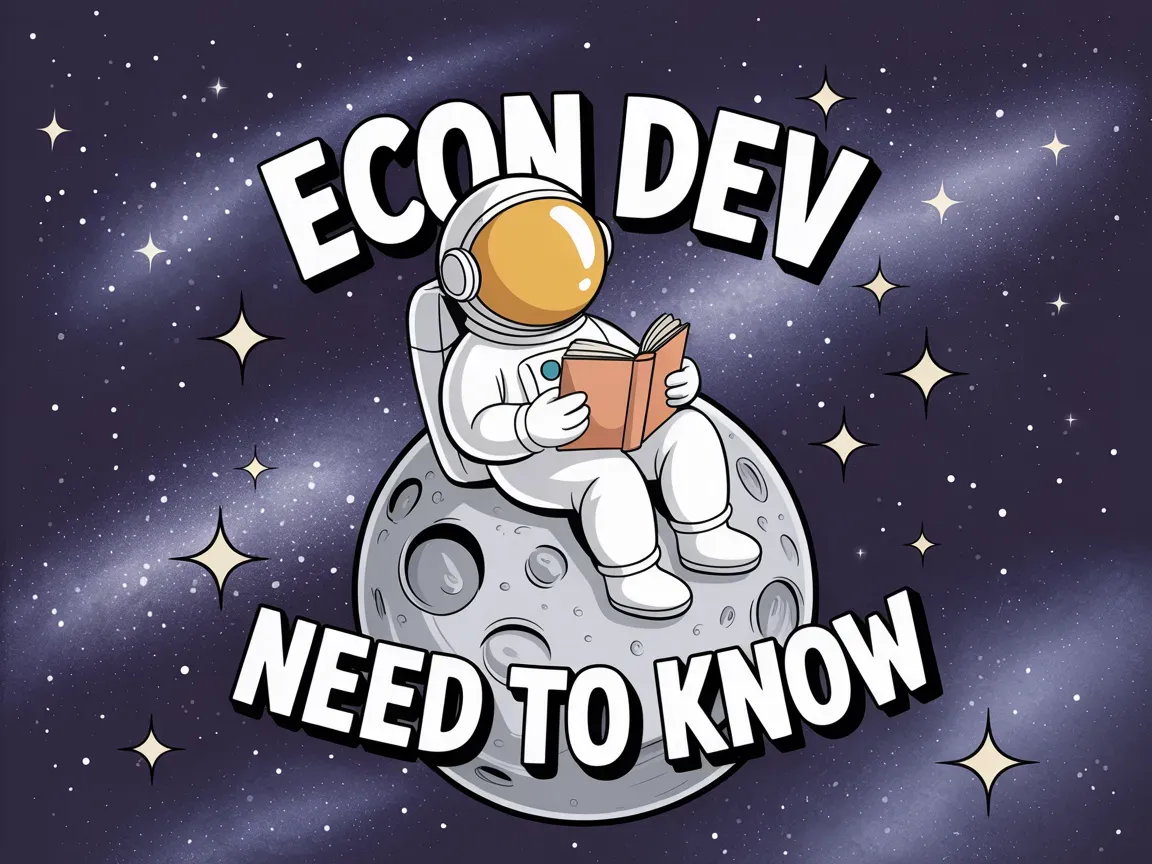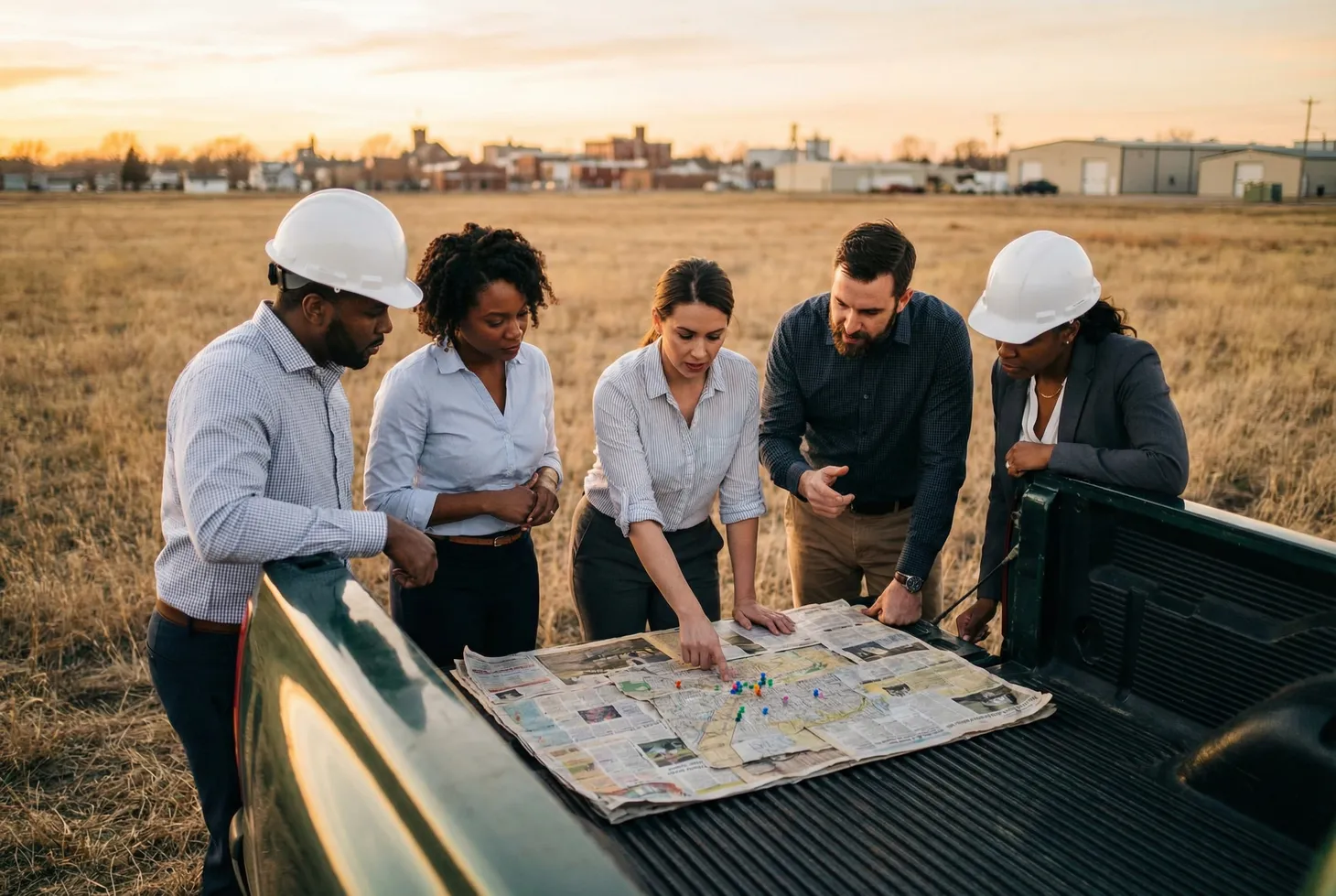Podcast Episode # 128: Empowering Rural Communities with Juliana Dodson
Where 'small town' doesn’t mean 'small ideas'

Table of Contents
In this episode of the Econ Dev Show Dane Carlson interviews Julianna Dodson, the Deputy Executive Director at the Hannah Grimes Center for Entrepreneurship and the director of Radically Rural.
Sponsor
Sitehunt is an AI-enhanced platform that helps economic developers build a comprehensive property database. Request a demo.
Description
The discussion revolved around the origins and work of the Hannah Grimes Center for Entrepreneurship, the national programming called Radically Rural, and their innovative approach to community development, including hosting conferences and events in unique locations to foster collaboration and innovation.
The conversation also delved into the concept of reweaving social fabric and the importance of genuine connection and communication in communities. Julianna shared her background and how she got involved in this field, highlighting the impact and opportunities for learning and engagement through the programs offered by Radically Rural.
Like this show? Please leave us a review here — even one sentence helps!
Episode Links
- Bowling Alone: The Collapse and Revival of American Community by Robert Putnam
- Braiding Sweetgrass: Indigenous Wisdom, Scientific Knowledge and the Teachings of Plants by Robin Wall Kimmerer
- Pathways to Rural Prosperity: Julianna Dodson
- Radically Rural on Facebook
- Theme & Keynote - Radically Rural
- Hannah Grimes Center
- Julianna Dodson | LinkedIn
Actionable Tactics from the Episode
Leverage Local Resources and Spaces:
Utilize existing local spaces for events and conferences, such as theaters, historical societies, courthouses, and even restaurants. This can help small communities host significant events without needing large conference centers, fostering local engagement and economic activity.
Promote Community-Based Solutions:
Encourage and support resident-owned communities as a potential solution to housing crises. Highlight successful models and elevate stories of positive deviants who have innovated within existing resources. This can inspire similar solutions in other regions.
Facilitate Knowledge Sharing and Networking:
Organize summits and conferences that bring together diverse stakeholders from various states and countries to share models, ideas, and resources. This helps build a national network of rural innovators and allows for the replication of successful strategies across different regions.
Focus on Social Capital and Collaboration:
Invest in building social capital through collaborative efforts and by fostering a sense of community. Utilize the concept of reweaving the social fabric by encouraging participation in local groups and fostering connections among community members to enhance social cohesion.
Implement Innovative Community Development Practices:
Experiment with creative community engagement methods, such as the Dream Play Build popup, where residents build models of their ideal community using found objects. This can reveal important community values and preferences, informing better community planning and development.
Develop Hard Skills for Community Conversations:
Equip community members with skills to have hard conversations and reach compromises. Techniques like looping, where participants repeat back what they heard to ensure understanding, can improve communication and conflict resolution within the community.
Customize Approaches for Rural Contexts:
Recognize that urban models cannot simply be downsized for rural areas. Develop and adapt strategies that specifically address the unique needs and characteristics of rural communities. This ensures that solutions are effective and sustainable in a rural context.
Encourage Active Participation in Community Organizations:
Promote the importance of joining local organizations, whether they are service clubs, religious groups, or other community-based entities. Active participation in these groups helps build social networks and strengthens community ties, contributing to overall economic and social resilience.
Econ Dev Show Newsletter
Join the newsletter to receive the latest updates in your inbox.


